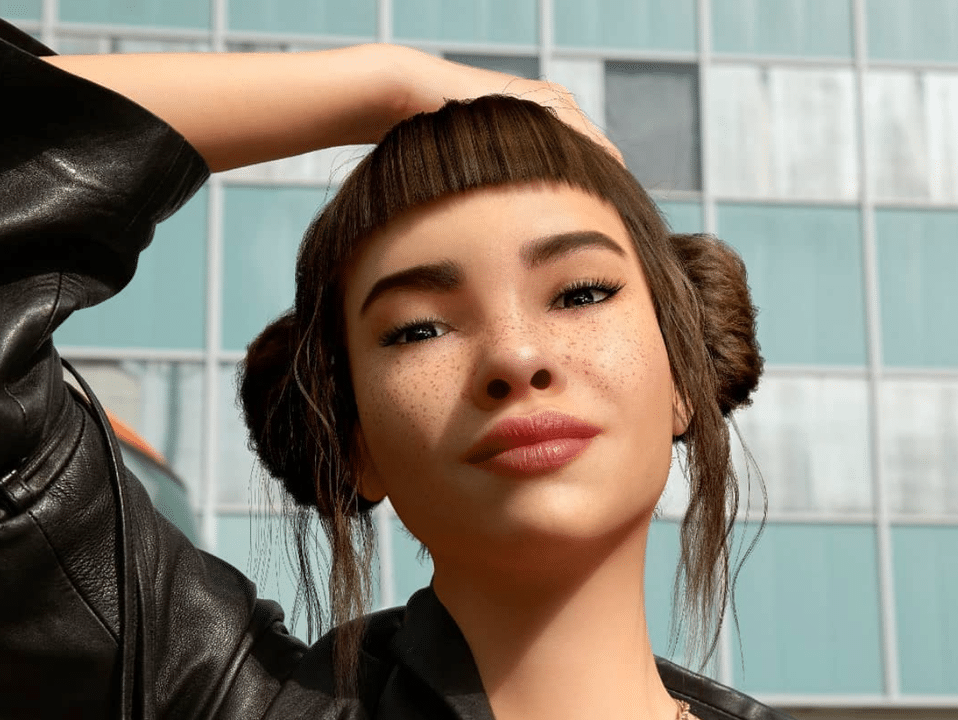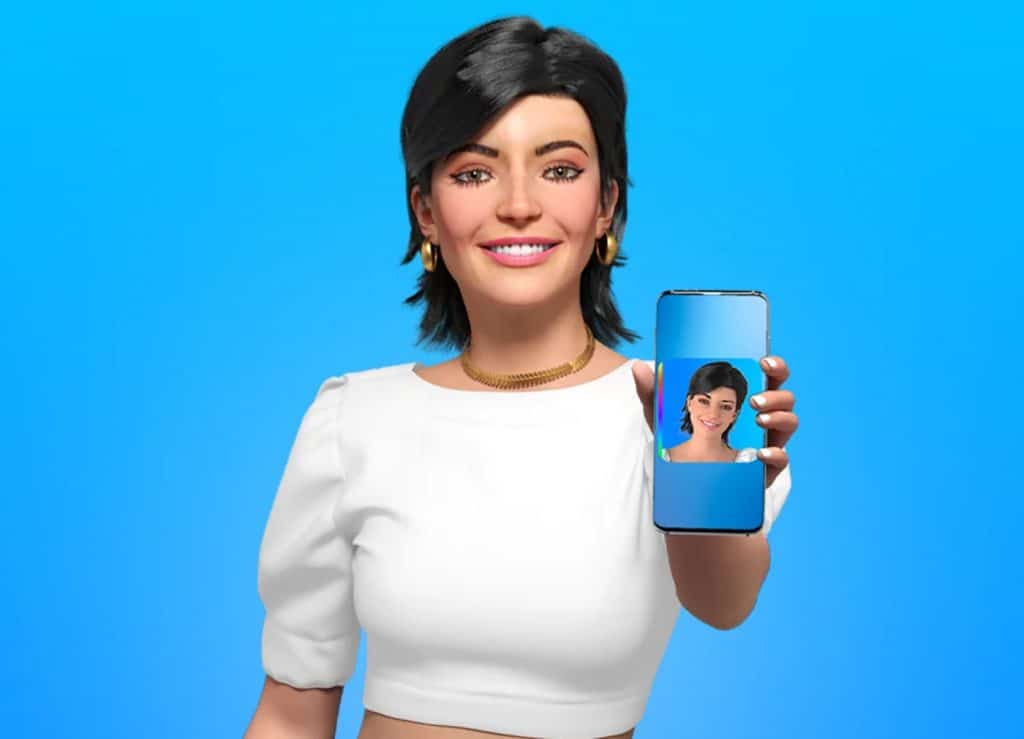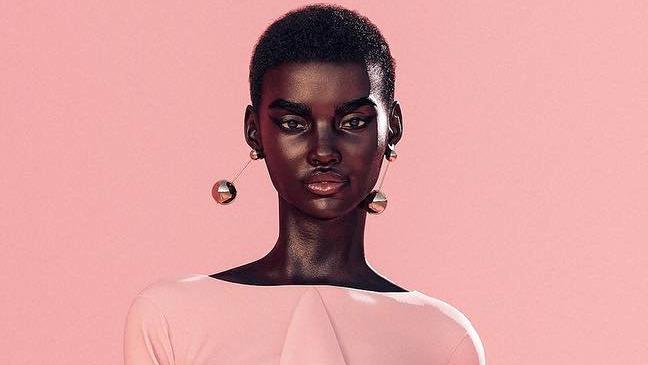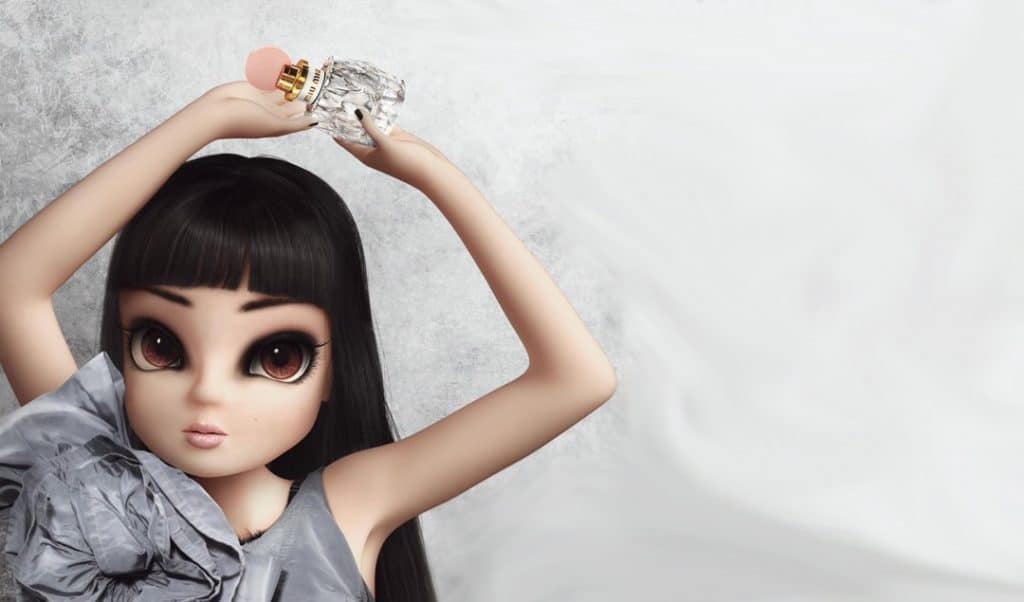Remember the early days of social media, when every perfectly placed photo and envy-inducing vacation post seemed a little…curated? Move over Valencia filters, for the next wave of influencers may not even be humans. We’re talking about AI influencers, which are computer-generated personalities who have amassed large followings, brand agreements, and even music careers.
Millions of people all over the world use Instagram to follow and interact with a new breed of online characters called AI influencers. But beyond the novelty factor, what does the rise of AI influencers mean for marketers and brands?
What is an AI influencer?
An AI influencer is a social media figure generated using artificial intelligence.
These realistic digital avatars may be customized to appear like anyone and programmed to say and do anything.
What are AI Influencers used for?
AI influencers are frequently utilized to promote products or brands, and they have amassed enormous followers on social media sites. Some AI influencers have their own product lines and endorsement partnerships.
I’ll admit, the first time I saw Lil Miquela on Instagram, I took a double take. This astonishingly lifelike virtual model with millions of followers was wearing a new dress while promoting a major makeup company. It felt like science fiction was seeping into reality. Beyond the first surprise, I began to ponder what the rise of AI influencers means for marketers and companies.
There is no denying the appeal of AI influencers. Take Lil Miquela as an example. She has cooperated with major brands such as Prada and Samsung, blurring the distinction between reality and simulation. The numbers back it up. According to the Influencer Marketing Hub, AI influencers can increase engagement rates by 22.4% compared to human influencers. This is a big advantage, particularly for brands trying to broaden their reach and effect.
Key Takeaways
- AI influencers are computer-generated personalities on social media, used for promoting products or brands, capable of amassing large followings and engaging with users in a human-like manner.
- The allure of AI influencers lies not only in their aesthetic appeal but also in their algorithmic advantage, allowing them to analyze vast amounts of data for personalized content creation and engagement optimization.
- AI influencers offer a level of control and customization for marketers, enabling targeted campaigns that resonate deeply with specific audiences without the risks associated with human influencers.
- Ethical considerations around AI influencers emphasize the importance of transparency, ensuring consumers are aware they are interacting with digital creations, not real individuals.
- The future of AI influencers suggests a blending of human and AI capabilities, enhancing marketing strategies with the precision of AI while retaining the authentic emotional connection of human influencers.
Benefits of Using AI Influencers
#1. AI’s Algorithmic Advantage
The allure of AI influencers extends beyond aesthetics. Advanced algorithms power AI influencers, as opposed to human influencers, whose engagement may vary depending on mood or outside events. These algorithms can scan massive amounts of data to determine audience preferences, cultural nuances, and even current themes. Consider an influencer who can adapt their content and messaging in real-time, continuously optimizing for optimum engagement.
The technological elements are fascinating. Many AI influencers are based on deep learning models, a sort of artificial intelligence loosely modeled after the human brain. These models are trained on large databases of photos, text, and even audio, allowing them to create hyper-realistic imagery, appealing subtitles, and even natural-sounding conversations.
In my previous work at a cosmetics firm, we tested a prototype AI influencer campaign. We created an AI avatar named “Aura” exclusively for Gen Z beauty fanatics. Aura could create makeup tutorials that included the most recent trends, answer product inquiries courteously and knowledgeably, and even adjust her communication style depending on the user’s location and language. The results were amazing. Engagement levels skyrocketed, and we witnessed a big rise in brand awareness within our target audience.
#2. Effective and Time-saving
As a marketer, I’ve witnessed firsthand the challenges of traditional influencer marketing. Finding the ideal candidate for a brand campaign may be a time-consuming and costly task. There is always the risk that a human influencer’s personal life or brand misalignment would wreck a perfectly planned campaign.
In contrast, AI influencers provide an extremely enticing amount of control and customization. Consider an influencer who is properly-suited to your target group and can convey messages that have a deep impact. AI influencers may be trained to speak many languages, represent a variety of races, and embody specific beliefs, making them a marketer’s dream for targeted marketing.
Last year, I worked on a campaign for a sustainable apparel line. Our target audience was Gen Z eco-warriors, and we struggled to locate human influencers who spoke to this demographic. Then we discovered Gaia, an AI influencer and virtual environmental campaigner who has a large following among young people. Gaia wonderfully embraced the brand’s ideals, and her message connected with the audience. The campaign was a big success, far exceeding our engagement targets and resulting in significant sales growth.
#3. Beyond Engagement Metrics: The Power of Emotional Connection
As a brand storyteller at heart, I had one remaining concern: could AI influencers genuinely recreate the emotional connection of a human personality? This question was put to the test when I recently worked as a consultant for a travel firm. Their target group, adventurous millennials, desired authentic travel experiences. We created an AI avatar called “Journey,” a virtual travel writer who covered off-the-beaten-path destinations and unusual cultural experiences.
Journey’s content was more than just magnificent vistas; it was filled with personal experiences, amusing asides, and a real desire to explore. The response was astounding. Users weren’t just passively reading material; they were actively engaged with Journey, looking for trip tips and sharing their own adventure stories. This experience demonstrated the ability of AI influencers to establish emotional ties, resulting in a sense of community and shared experience around a brand.
The Algorithmic Paradox: Personalization versus Privacy
AI influencers’ ability to assess large amounts of data and personalize material in real-time is obvious. Consider advertising that automatically adjusts to specific user preferences, cultural subtleties, and even emotional states. This level of customization can completely transform marketing. However, the ethical consequences cannot be overlooked. The line between personalization and intrusion is fine. Overly tailored marketing might come across as creepy and invasive, eroding consumer confidence. We must ensure that AI influencer development prioritizes user privacy and open data collection procedures.
Ethical Considerations Regarding the Use of AI Influencers
Of course, with this new frontier comes a slew of ethical concerns. Transparency is paramount. Consumers have the right to know whether they are communicating with a real person or a computer program. Deception can damage trust, which is the cornerstone of any effective influencer marketing plan.
This is where a comprehensive AI influencer disclosure template is essential. This template would define crucial facts for brands to reveal, such as AI autonomy and human creative control.
You can use our free AI influencer disclosure template below.
Who is the Most Popular AI Influencer?
Miquela Sousa, often known as @lilmiquela, is one of Instagram’s most prominent virtual influencers.
With over 2.9 million followers, she has collaborated with designer labels such as Prada and Calvin Klein.
Top 5 AI Influencers To Follow
Advancements in deep learning and computer vision make it easier to create AI influencers, confusing the distinction between human and AI-generated material.
As a result, some AI influencers have gained popularity on various social media platforms, attracting audiences with their lifelike presence and intriguing material.
Now, let’s look at the top five AI influencers today and what they bring to the table.
#1. Lil Miquela

Lil Miquela is one of the pioneering virtual influencers, with an amazing 2.7 million Instagram followers. A Los Angeles-based company called Brud, which specializes in robotics and artificial intelligence, produced this 19-year-old hit.
Recognized as the original AI influencer, she interacts with her large Instagram audience by exhibiting her latest fashion ensembles and sharing her music, which includes hits like “Sleeping In” and “Money” on Spotify.
The virtual influencer expanded her reach by teaming with Samsung on their 2019 #teamgalaxy campaign. Significantly, she teamed with Bella Hadid, a real-life supermodel, on a Calvin Klein commercial campaign. Furthermore, her significance was recognized when she was named one of The Times’ “Most Influential People on the Internet” in 2018.
#2. Lu de Magalu

In the ever-changing world of virtual influencers, Lu do Magalu, an AI influencer and digital expert affiliated with the Brazilian retail powerhouse Magazine Luiza, has not only endured the test of time but has also grown to become an iconic figure in the digital sphere.
Her YouTube experience began in August 2009, when she stepped into the spotlight to promote iBlogTV on behalf of Magalu. Since her auspicious debut, Lu has used her rapidly developing social media presence to provide fascinating and educational product reviews, unboxing videos, and essential software recommendations to her devoted followers.
Lu da Magalu is the world’s most visible virtual human, with a staggering seven million Instagram followers alone. However, her enormous influence and fame are mostly limited to the lively coastlines of Brazil. Lu is a digital pioneer, challenging the traditional definition of an influencer while pushing for Magalu’s interests with a distinct touch of 3D charm.
#3. Shudu Gram

Shudu Gram, a South African fashion model that photographer Cameron-James Wilson created, has mesmerized audiences with her stunningly lifelike features. Shudu’s Instagram debut sparked suspicion, but she has now become a fashion staple, appearing in prestigious publications such as Cosmopolitan and Vogue.
In March 2018, Rihanna’s Fenty Beauty brand increased Shudu’s allure by reposting her content on their channels, exposing her to a vast following of over 8.1 million.
Shudu has amassed a committed following of 247K admirers since her virtual existence, cementing her place with a modeling contract with TheDiigitals.com, a digital supermodel agency. In addition, she has become a respected part of the Balmain family, serving as one of their esteemed models.
#4. Nounoouri

Noonoouri, a dynamic virtual influencer, has captivated the fashion world’s attention with her distinct blend of activism and style, gaining 432K Instagram followers since her debut in 2018.
Her Instagram bio reveals a diverse persona: she’s a digital character, a vegan campaigner, and an IMG Models fur-free fashion ambassador.
Despite global collaborations with prominent fashion designers, she is committed to sustainability and veganism. Joerg Zuber, the creative mind behind her avatar at Opium Effect creative agency, saw her as a unique way to entertain and educate people.
#5. Leya Love

Leya Love, a distinct digital influencer with 510K Instagram followers, rose to prominence as a dynamic leader of the love movement in early 2020. As a virtual ambassador, Leya represents the #WorldAwarenessMovement (WAM), which is dedicated to global living.
In just 14 months, she had touched over 800 million hearts, embodying the spirit of love and inspiring a movement that begins within. The Cosmic Universe created Leya, whose aim is to promote compassion, gratitude, trust, and ecological consciousness.
Aside from her profound path, Leya works as an NFT artist, published author, speaker at global youth conferences, and collaborator with similar avatars, influencers, artists, and human rights activists. She actively participates in the profound examination of life’s meaning and the power of the heart and mind.
What Is the Future of AI Influencers?
As AI technology advances, the prevalence of AI influencers is expected to increase. Addressing the challenges of verification and authenticity becomes critical. Standardized verification techniques and advanced algorithms can help reduce the hazards associated with AI-generated content.
Furthermore, promoting openness and ethical behavior among the influencer community is critical. Educating followers about the existence of AI influencers, as well as providing information on collaborations and endorsements, can help to build trust and credibility.
AI influencers have emerged as prominent actors on social media, providing unique engagement and marketing opportunities. Nonetheless, determining the legitimacy of their content raises difficulties, posing threats to followers and the influencer industry.
AI influencers are unlikely to rule the future of marketing on their own. Instead, we will see the emergence of a human-AI symbiosis. Consider human influencers using AI tools to assess audience demographics and improve their content strategy. Alternatively, AI influencers can draw inspiration from human ingenuity to create more nuanced and relatable characters. The idea is to leverage the qualities of both the personal touch and the computational advantage.
Conclusion
The emergence of AI influencers represents a fundamental shift in the marketing landscape. While some regard them as a threat, skilled marketers may use their potential to create highly focused, compelling campaigns. As AI technology advances, the distinction between humans and machines will become increasingly blurred. The issue remains: Are we ready to embrace this new era of influence? What are your thoughts about AI influencers? Do you consider them valuable marketing tools or a fading fad?
- INFLUENCER MARKETING: Meaning, Examples, Strategy & Agency
- INFLUENCER: Meaning, How to Become One & Examples
- INFLUENCER PROGRAM: How To Start a Successful One
- HOW TO BECOME A SOCIAL MEDIA INFLUENCER
- HOW TO BE AN INFLUENCER: Complete Guide & Free Tips to Know






